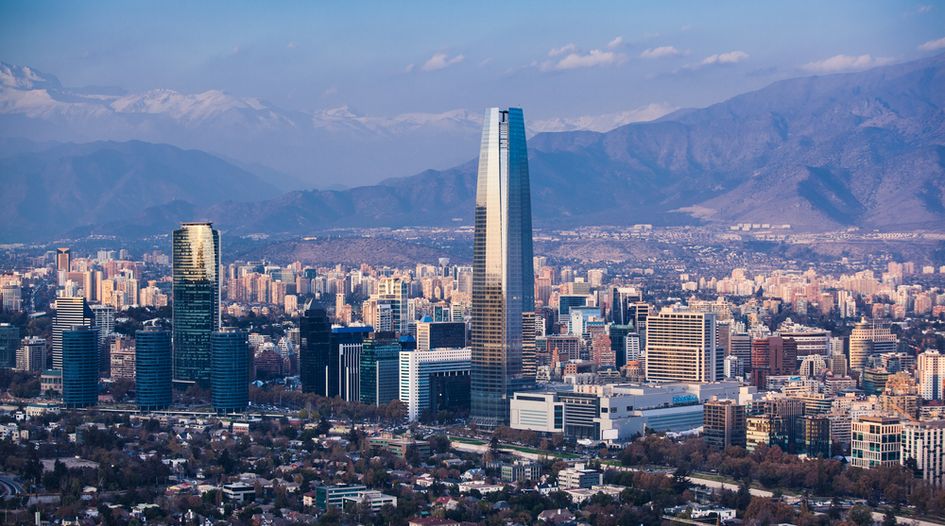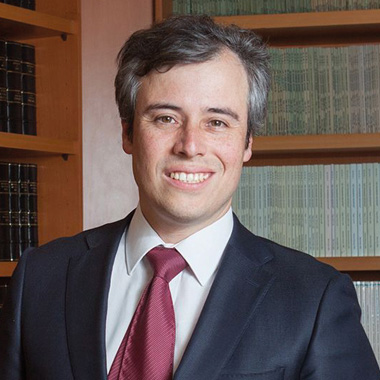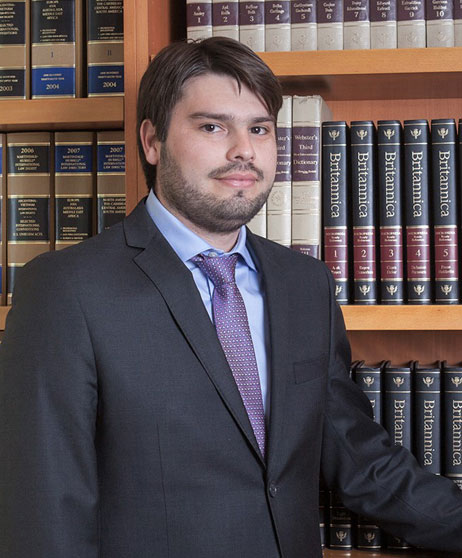Chile: Applying the IP law under the Madrid Protocol

This is an Insight article, written by a selected partner as part of WTR's co-published content. Read more on Insight
In summary
The Madrid Protocol and its implementation by the Chilean Trademark Office (CL TMO) once again made the news in 2023. The CL TMO has given the Protocol a self-executing character and has only issued general instructions to its staff regarding the Protocol’s application (ie, Exempt Resolution 184-2022). In this article, we discuss two important points. The first is related to the scarce regulation of the nullity action of a trademark registered in Chile that corresponds to a Madrid Protocol designation and the lack of legal certainty it causes for international users. The second is related to the ‘all-in-one’ approach adopted by the CL TMO related to provisional refusals, particularly in relation to the formal examination of designations in Chile and the tensions that this generates with IP Law 19,039.
Discussion points
- Analysis of trademark cancellation actions in the context to the Madrid Protocol
- Provisional refusals of the Madrid Protocol made by the CL TMO, and particularly those derived from formal objections
Referenced in this article
- Exempt Resolution 184 of 2022
- IP Law 19,039 of 1991 and its Regulations
- Law 21,355 that modifies IP Law 19,039
- Law 19,880 that Establishes Bases of the Administrative Procedures that Govern the Acts of the Bodies of the State Administration
Some reflections on trademark cancellation actions in the context of the Madrid Protocol
Regarding cancellation of a trademark, and after several changes over the past few years to IP Law 19,039, a trademark registration can only be cancelled in the following ways:
- Voluntary withdrawal: any party can voluntarily withdraw a registration. When made through a representative, special powers are required.
- Cancellation action: registration granted to signs deemed unprotectable by the IP Law may be invalidated on the basis that prohibitions for granting registration were ignored. Such an action must be filed within five years of the registration date.
Notwithstanding this, there is no time limit for filing an invalidation action against a mark registered in bad faith.
Also, in changes introduced by Amendment Law 21,355, a revocation action for lack of use is now available in Chile. As of 9 May 2022, the following revocation scenarios are also possible:
- For new trademarks, a registration granted after 9 May 2022 will be cancelled if the trademark has not been put to real and effective use in Chile within five years of when registration was granted, either by the owner or by a third party with his or her consent, to distinguish one or more of the goods or services for which the registration was granted, or use was suspended without interruption for the same period.
- A cancellation action is also established when a trademark has become generic. This action can be exercised as of the entry into force of Amendment Law 21,355.
All these actions are heard at the first instance by the head of the CL TMO and at the second instance by the Industrial Property Court. In some circumstances, decisions of the Industrial Property Court may be appealed before the Supreme Court.
On the other hand, according to article 13 of IP Law 19,039, the form of a notification regarding cancellation actions against national (local) trademark registrations must be done in the terms indicated in articles 40 et seq of the Civil Procedure Code, for which foreign owners must establish domicile in Chile. In other words, a cancellation action against a person with no domicile or residence in Chile will be notified to their lawyer or representative referred to in article 2 of the IP Law.
Notwithstanding this, the CL TMO has decided to interpret the Madrid Protocol as being self-executing and, therefore, there is no need to reform Law 19,039 to apply it. Regarding the instructions for the processing of international trademarks under the Protocol relating to the Madrid Agreement under Exempt Resolution 184-2022, the referred article has been validated as being applicable to the international trademarks filed under the Madrid Protocol, but subject to the particularities that the instructions establish.
Hence, before provisional refusal of an international registration in Chile as a designated country, the holder of the registration must appear before the CL TMO and carry out formalities according to the national procedure, and must appoint a representative domiciled in Chile, in accordance with the provisions of the IP Law 19,039 and its Regulations.
In the context of a notification of cancellation action against the owner of a Chilean registration, there will be no problem with a national application or an international registration if the CL TMO provisionally refuses international registration during its procedure, owing to the obligation to appoint a local representative.
However, what happens in international registrations that appoint Chile as a designated country and do not receive any objection from the trademark office, being registered locally without the need to have appointed a local agent?
The foregoing presents a practical problem as it is unclear how or when the holder will become aware of the notification of cancellation, creating uncertainty for both parties. Moreover, owing to the implementation of the Madrid Protocol in Chile (starting on 4 July 2022), no cases have yet been presented, hence no jurisprudence or criteria in this regard have been established by the CL TMO, the Industrial Property Court or the Supreme Court. From our perspective, an amendment to Chilean law reinforcing the need to appoint a local representative in any case is necessary.
The ‘all-in-one’ position of provisional refusals and the issue with respect to formal out-of-time review
Another very important issue, which will surely be very interesting for users of the Madrid Protocol interested in designating Chile, has to do with the criteria being adopted by the CL TMO when issuing provisional refusals, particularly those derived from formal objections.
To fully understand the above, we must start by confirming that designations in Chile, once they enter the national territory, should follow the same legal treatment as trademark applications filed directly in the country.
Notwithstanding this, while holders of designations in Chile, as happens in many countries, will only see provisional refusals in a centralised form, in the national file of the trademark application associated with each designation, different concepts are used and associated with the normal procedure of processing a trademark. For example, the WIPO will notify the owners of a provisional refusal, which may be of a formal or substantive nature or based on an opposition filed by an interested third party. But in Chile, there is a legal procedure that must be complied with and that perhaps is not being fully respected with regard to Madrid Protocol designations. In other words, the Office could be forcing the procedure to comply with the requirements of the Protocol, but in such a way that it might be ignoring important rules.
Before entering into the analysis, it should be noted that, to date, the CL TMO has formulated three types of provisional refusals, which may be manifested individually or simultaneously in the same case, adopting an all-in-one solution:
- Those based on substantive objections: by legal mandate, the CL TMO must conduct a substantive examination with respect to every trademark application in Chile, and designations in Chile are no exception. This kind of examination, by explicit mandate of article 22, paragraph 4 of IP Law 19,039, must be carried out once the period for filing an opposition by interested third parties has concluded. The objective of this exam is to determine whether the designation in Chile incurs any grounds for refusal established by IP Law 19,039. If any of these hypotheses is verified, the CL TMO will issue a provisional refusal (eg, when a designation is confusingly similar to a mark previously applied for or registered in Chile by a third party or when the CL TMO considers that a trademark application is generic or descriptive with respect to the goods and services it has specified).
- Those based on oppositions: likewise, it is important to consider that IP Law 19,039 requires that any trademark application filed in Chile be advertised so that any interested party may file an opposition against it. While all trademark applications filed in Chile must be published, by legal mandate in the Official Gazette, designations in Chile, by a decision of the CL TMO, are published in an electronic gazette created by the CL TMO for this purpose. If, within 30 days of publication, the designation in Chile is opposed, the CL TMO will issue a provisional refusal.
- Those based on formal objections: finally, perhaps the most controversial case has to do with the provisional refusals associated with formal objections. Normally, the CL TMO, through the trademark conservator, carries out a formal examination of any trademark application filed in Chile after its filing and prior to its acceptance for prosecution, which will then result in its publication for opposition purposes. Thus, if it considers, for example, that it is necessary to specify further the designated goods and services, it will issue an official action requesting the applicant amend the situation. For this purpose, article 22, paragraph 1 of IP Law 19,039 grants a term of 30 days to correct the problem, which does not affect the right of priority. If the above does not occur, the Office may declare the abandonment of the application for failure to comply with the official action. In practice, in most cases it grants a new period of 30 days, and possibly even more than one.
Notwithstanding this, in the case of designations in Chile, something different happens, which could be considered at odds with the contents of IP Law 19,039. In fact, the CL TMO has altered the usual order of the procedure ex officio, carrying out the formal examination after the publication of the extract of the designation in Chile in the Office's electronic gazette. Moreover, the formal examination is no longer performed by the trademark conservator as required by domestic law but is carried out directly by the head of the TMO.
In practice, the CL TMO has adopted the strategy of carrying out the formal examination within the substantive examination stage, thereby changing its legal nature. The Office has justified this situation, for example, based on the impossibility of determining the object of protection clearly and unequivocally because the goods and services are drafted in terms that are too broad, ambiguous and confusingly similar to other classes, making it impossible to carry out the substantive examination and grant such goods and services.
While the above could be acceptable for a provisional refusal under the WIPO rules, we must remember that the Chilean designation is also part of an internal regulated procedure – a situation that cannot be forgotten under the pretext of complying in any way with the obligations of the Madrid Protocol. What really corresponds at the moment is to carry out the formal examination within the stage established by IP Law 19,039. Basically, the current implementation of the Madrid Protocol in Chile led by the CL TMO has no mirror in certain aspects of IP Law 19,039.
In other words, the Office is creating a new cause for non-registrability not contemplated in article 20 of IP Law 19,039, in circumstances where the sanction for non-compliance with a formal requirement is not rejection, but abandonment. For clarity, the abandonment of a trademark application is very different from its rejection, as the former occurs at the formal stage of the procedure and implies that the CL TMO does not rule on the merits of the application. On the other hand, rejection is an institution of strict law, and its grounds are expressly established in article 20 of IP Law 19,039, and the CL TMO cannot add new grounds.
At the end of the day, we believe that the CL TMO has run into a practical problem with the implementation of the Madrid Protocol in Chile, as it has dispensed with a modification of the Law, has interpreted the Protocol as being self-executing and has only issued general instructions for its staff to apply it in a certain way (ie, Exempt Resolution 184-2022). This has generated many inconsistencies that could contravene the express text of IP Law 19,039.
Certainly, the CL TMO could issue a partial refusal before the publication of the designation in the electronic gazette, but after that it would have to wait to know if there are oppositions and then carry out the substantive examination. Eventually, other impediments could arise, turning the procedure into a very complex one for the holders of the designations in Chile, generating a lack of legal certainty.
It seems that one solution to this is, in addition to the CL TMO correctly applying the domestic law, complying with the legal obligation to appoint a representative in Chile in all trademark applications, including designations of the Madrid Protocol, as established in article 2, paragraph 1 of IP Law 19,039, as in this way, the formal examination could be carried out normally by the Office. Unfortunately, the position of the CL TMO, as stated in article 12(4) of Exempt Resolution 184-2022, is to require representation only when an action will be taken before the Office.
For the moment, and as long as the CL TMO does not follow IP Law 19,039 in its entirety, Exempt Resolution 184-2022 will continue to govern as, in accordance with Law 19,880 that Establishes Bases of the Administrative Procedures that Govern the Acts of the Bodies of the State Administration, it will remain in force and is presumed to be legal, imperative and enforceable against its addressees, from its entry into force, unless the Act is challenged, ex officio or upon request, and it is declared ineffective by order of the administrative authority or the competent judicial court.
To date, there is no news of any challenge to Exempt Resolution 184-2022. If a challenge arises in the future, its effects should not be retroactive as, for this to occur, it is required by law that not only must there be favorable consequences for the interested parties, but also the rights of third parties must not be infringed.
In any case, to avoid any issues in the future, it would be advisable to voluntarily designate a representative in Chile from the beginning as established in IP Law 19,039 to allow the CL TMO to potentially perform the formal review at the appropriate time.

